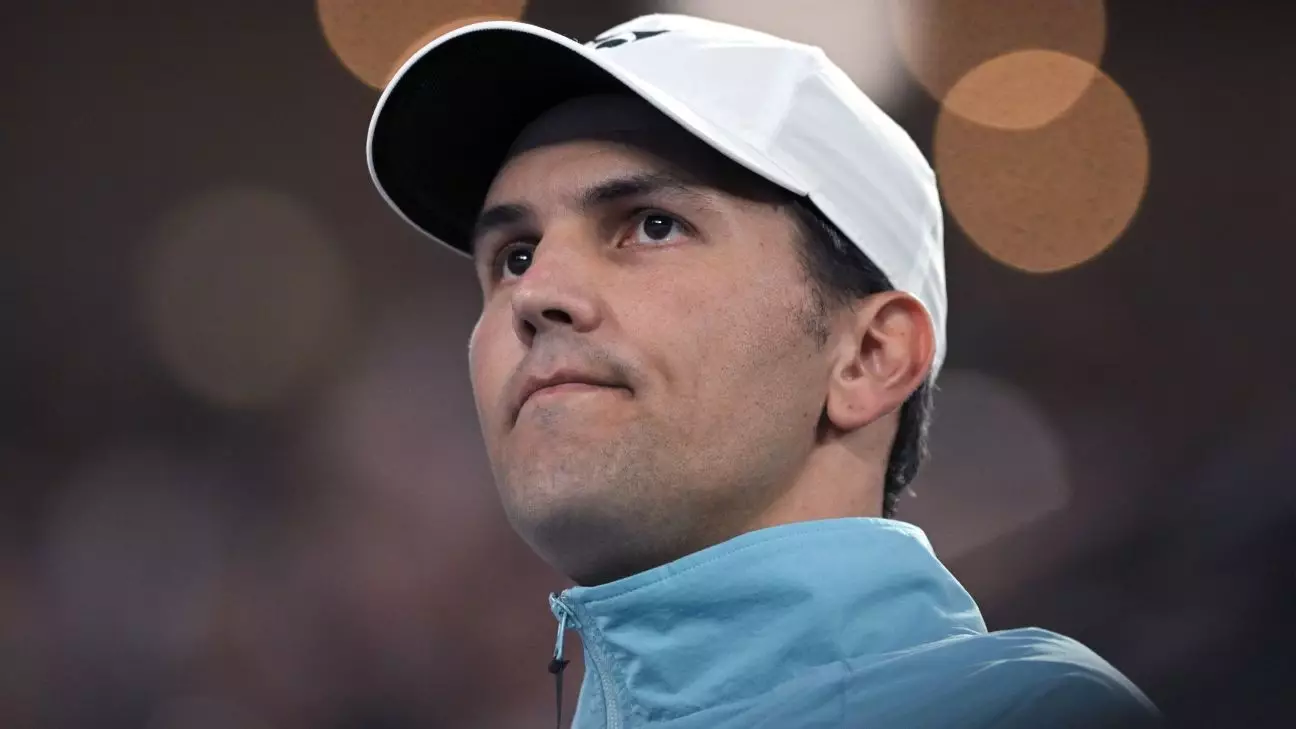In a significant development in women’s tennis, the WTA Tour has confirmed that the suspension of Elena Rybakina’s former coach, Stefano Vukov, is still in effect following a comprehensive investigation into his adherence to the WTA’s code of conduct. The governing body’s decision comes with a lack of specific timelines regarding the duration of Vukov’s ban, leaving many in the tennis community speculating about the implications for both Vukov and Rybakina. The Croatian coach has openly denied any misconduct, positioning the controversy in a light that raises questions about accountability and transparency within the sport.
Elena Rybakina, who achieved monumental success as the 2022 Wimbledon champion, has publicly defended Vukov, stating that he “never mistreated” her during their partnership. This defense is particularly notable against the backdrop of an increasingly critical environment in sports where allegations against coaches can not only taint reputations but also disrupt athlete careers. Rybakina’s disagreement with the provisional suspension underlines a crucial aspect of this situation: the complexity of coach-athlete relationships and the challenges athletes face when external narratives conflict with their personal experiences.
In its official statement, the WTA underlined its dedication to a fair investigative process, affirming that confidentiality was paramount to the integrity of their findings. However, the lack of detailed information regarding the nature of Vukov’s alleged misconduct raises concerns about whether the governing body is doing enough to protect its athletes while fostering a culture of openness. The tennis community, including fans, players, and coaches, is left to ponder what the implications of such decisions mean for the sport’s future.
Rybakina’s coaching situation has been a rollercoaster since the latter part of the previous season. Following her decision to part ways with Vukov before the US Open, she promptly announced her collaboration with Goran Ivanisevic, the 2001 Wimbledon champion. However, shortly before the Australian Open, she stunned fans by hinting at Vukov’s return to her team—a decision cloaked in ambiguity given the unresolved suspension. Rybakina’s fluctuating coaching circumstances reflect the broader uncertainties that players face, especially when navigating their careers alongside entrenched expectations and ongoing controversies.
As Rybakina prepares for future tournaments amidst these complications, the tennis world watches closely to see how her situation unfolds. The duality of supporting a coach amid allegations and pursuing peak performance in a competitive environment illuminates the intricate balance athletes must maintain. With the coaching landscape continuously evolving—and now intertwined with serious allegations—the ongoing saga serves as a reminder of the delicate nature of trust and reputation in sports. Both Rybakina and Vukov’s next moves will be pivotal in shaping not just their careers but also influencing perceptions of conduct and accountability in the realm of women’s tennis.


Leave a Reply